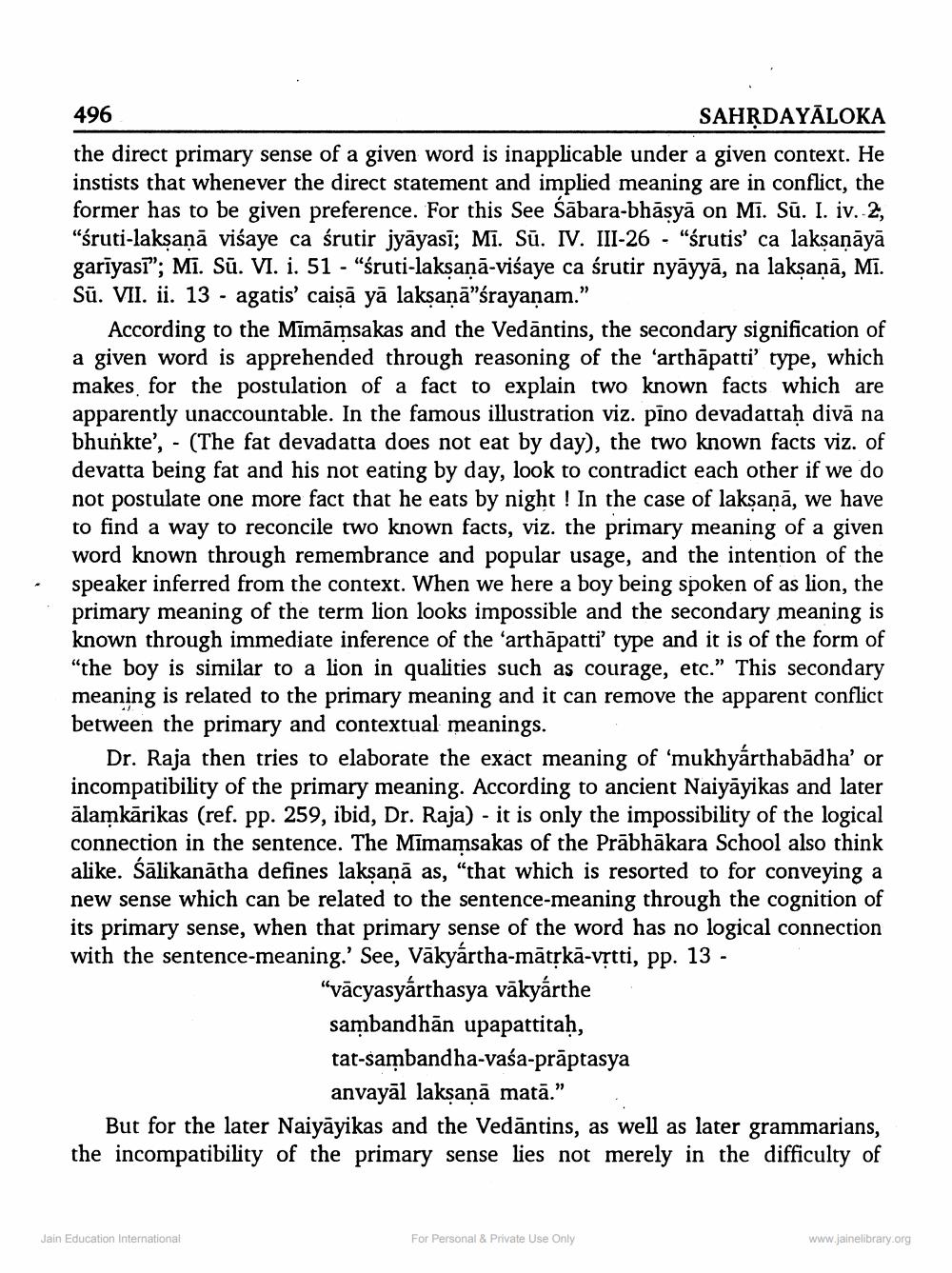________________
496
SAHRDAYĀLOKA the direct primary sense of a given word is inapplicable under a given context. He instists that whenever the direct statement and implied meaning are in conflict, the former has to be given preference. For this See Sābara-bhāsyā on Mi. Sū. I. iv. 2, "śruti-laksanā viśaye ca śrutir jyāyasi; Mi. Sū. IV. III-26 - "śrutis' ca laksanāyā gariyasi"; Mi. Sü. VI. i. 51 - "śruti-laksanā-visaye ca śrutir nyāyyā, na laksanā, Mi. Sū. VII. ii. 13 - agatis' caisā yā laksanā"śrayanam."
According to the Mīmāmsakas and the Vedāntins, the secondary signification of a given word is apprehended through reasoning of the 'arthāpatti' type, which makes for the postulation of a fact to explain two known facts which are apparently unaccountable. In the famous illustration viz. pīno devadattah divā na bhunkte', - (The fat devadatta does not eat by day), the two known facts viz. of devatta being fat and his not eating by day, look to contradict each other if we do not postulate one more fact that he eats by night ! In the case of laksanā, we have to find a way to reconcile two known facts, viz. the primary meaning of a given word known through remembrance and popular usage, and the intention of the speaker inferred from the context. When we here a boy being spoken of as lion, the primary meaning of the term lion looks impossible and the secondary meaning is known through immediate inference of the 'arthāpatti' type and it is of the form of "the boy is similar to a lion in qualities such as courage, etc.” This secondary meaning is related to the primary meaning and it can remove the apparent conflict between the primary and contextual meanings.
Dr. Raja then tries to elaborate the exact meaning of 'mukhyárthabādha' or incompatibility of the primary meaning. According to ancient Naiyāyikas and later ālamkārikas (ref. pp. 259, ibid, Dr. Raja) - it is only the impossibility of the logical connection in the sentence. The Mimamsakas of the Prābhākara School also think alike. Sālikanātha defines laksaņā as, “that which is resorted to for conveying a new sense which can be related to the sentence-meaning through the cognition of its primary sense, when that primary sense of the word has no logical connection with the sentence-meaning.' See, Vākyártha-mātņkā-vrtti, pp. 13 -
"vācyasyārthasya vākyarthe sambandhān upapattitaḥ, tat-sambandha-vasa-prāptasya
anvayāl lakṣaṇā matā.” But for the later Naiyāyikas and the Vedāntins, as well as later grammarians, the incompatibility of the primary sense lies not merely in the difficulty of
Jain Education International
For Personal & Private Use Only
www.jainelibrary.org




